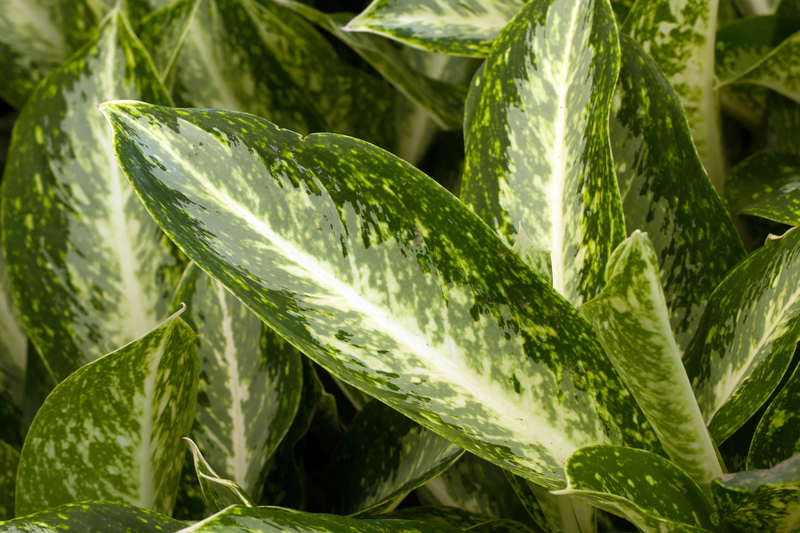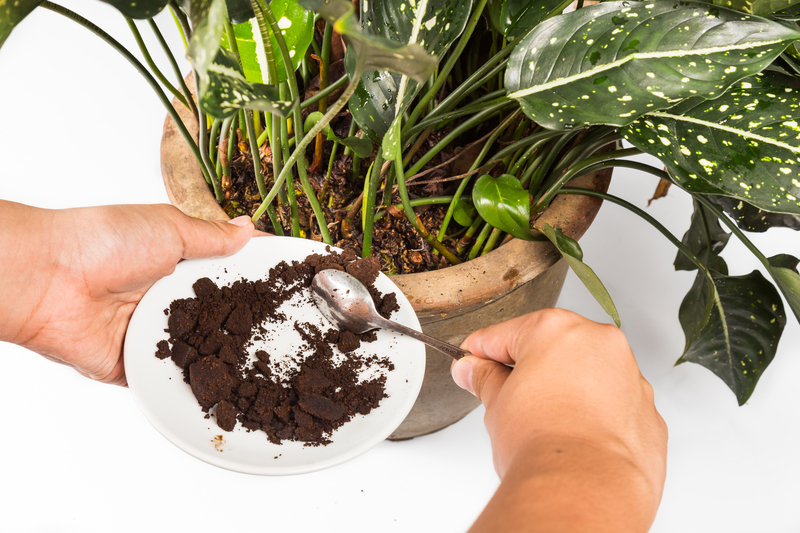Your First Garden Awaits: 9 Key Tips for Beginners
Posted on 21/09/2025
Your First Garden Awaits: 9 Key Tips for Beginners
Have you always dreamed of creating your own lush outdoor space full of flowers, herbs, or even home-grown veggies? Starting your very first garden can feel overwhelming, but with the right guidance, even beginners can enjoy thriving results. Whether your goal is a vibrant flower bed or a productive vegetable patch, learning the basics is essential to gardening success.
This comprehensive guide covers 9 essential gardening tips that every beginner should know before picking up a trowel or planting their first seed.
Why Start Your Own Garden?
Gardening rewards both body and mind. The gentle physical activity improves health, tending to plants reduces stress, and harvesting home-grown produce boosts your diet's nutrition. Plus, gardening offers the simple joy of watching life grow under your care.
- Enjoy fresh, organic produce or flowers.
- Create a beautiful, peaceful environment at home.
- Connect with nature and your local ecosystem.
Now that you're inspired, let's dig into the top beginner gardening tips for success!

1. Choose the Right Location for Your First Garden
The location you pick for your first garden can make or break your efforts. Most plants need at least six hours of sunlight each day. Watch your yard at different times of the day to spot sunny and shady areas.
- Avoid placing your first garden near trees or large shrubs that can shade your plants or compete for nutrients.
- Consider your access to water; being close to a hose or faucet simplifies watering.
- Ensure your plot is slightly raised to prevent waterlogging and encourage drainage.
2. Start Small and Expand Gradually
When it comes to your initial gardening experience, enthusiasm is great, but don't bite off more than you can chew! Starting with a manageable area--such as a 4'x4' bed, a few containers, or a single raised bed--lets you learn, experiment, and avoid feeling overwhelmed.
- Practice with a small plot or containers if space is limited.
- Master a few plants before expanding. This helps you build confidence and skills.
Remember: It's better to have a small, healthy first garden than a big, neglected one.
3. Know Your Soil Types and Prepare the Ground
Healthy soil is the foundation of successful gardening. Before planting anything, take time to understand (and, if needed, improve) your soil.
Understanding Soil Composition
- Clay soil tends to clump and drain slowly, but is rich in nutrients.
- Sandy soil drains quickly, but can lack nutrients and dry out.
- Loamy soil is ideal for most gardening beginners--it's well-balanced and fertile.
Soil Testing and Amendment
You can buy a simple soil test kit or send a sample to your local cooperative extension to check pH and nutrient levels.
- Add compost or well-rotted manure to boost fertility.
- If soil is heavy and clay-like, add sand or organic material to improve drainage.
- For sandy soil, add organic matter to improve moisture retention.
Tip: Healthy soil means healthy, resilient plants, so don't skip this critical step for your first garden!
4. Choose Beginner-Friendly Plants
Your first garden will be most successful if you choose plants that match your climate and are easy to grow for beginners. Look for varieties labeled as "easy" or "low maintenance."
- For vegetables, start with lettuce, radishes, beans, carrots, or zucchini.
- For herbs, try basil, mint, chives, or parsley. These are hardy and grow quickly.
- For flowers, marigolds, sunflowers, or zinnias are tolerant and add color.
Check your USDA Plant Hardiness Zone to select species that thrive in your region. Local nurseries and garden centers are great sources of advice for beginner gardening enthusiasts.
5. Learn When and How to Water Effectively
Watering is one of the most common challenges for first-time gardeners. Both underwatering and overwatering can cause problems, so it's important to develop good habits from the beginning:
- Water deeply but less frequently to encourage deep root growth.
- It's best to water early in the morning, which reduces evaporation and prevents fungal diseases.
- Use mulch around plants to retain moisture and suppress weeds.
- Check soil moisture by sticking your finger into the soil; water if it feels dry two inches down.
Remember: Different plants have different water needs. Read the plant tags or seed packet instructions carefully!
6. Feed and Care for Your Plants
Even the best soil needs supplementing as plants use up nutrients. As a beginner, keep feeding simple but consistent:
- Apply organic compost in early spring and mid-season.
- If using fertilizer, follow package directions carefully--more is not always better.
- Regularly remove dead leaves or spent flowers (a process called "deadheading") to promote continued blooming or production.
Tip: Avoid chemicals if possible, especially with edibles. Natural and organic amendments are friendlier for your first garden and the environment.
7. Keep Weeds Under Control
Weeds can quickly take over and compete with your plants for resources. It's important to weed regularly, especially when plants are young:
- Mulch helps block sunlight to weed seeds, reducing their growth.
- Hand-pulling is effective if weeds are sparse; use a hoe or weeding tool for larger areas.
- Never let weeds flower: they'll spread seeds for next season!
Stay on top of weeds, and your garden will thank you with stronger, healthier plants!
8. Watch for Pests & Diseases
Pest and disease problems can discourage new gardeners. Luckily, with good habits you can prevent most issues:
- Inspect your garden regularly for leaf damage, discoloration, or chewed stems.
- Remove affected leaves or insects by hand as soon as you spot them.
- Encourage beneficial insects (like ladybugs and bees) by avoiding broad-spectrum pesticides.
- If you must intervene, choose organic or homemade solutions first.
Healthy, well-cared-for plants are far less likely to suffer from pests or disease!
9. Embrace Learning and Enjoy the Gardening Process
Gardening, especially your first time, is as much about the journey as the results. Don't worry if everything isn't perfect right away! Every gardener learns by trying, making mistakes, and celebrating small victories.
- Keep a simple gardening journal to record what you plant, when you water, and what works best. This helps improve your skills over time.
- Connect with local gardening clubs or online forums (like Reddit's gardening community or Facebook groups) for advice tailored to your area.
- Take photos as your garden grows--progress is inspiring!
Above all, enjoy every moment spent in your garden. Take time to notice the insects, the scents, and the changing seasons. You're building a lifelong appreciation of nature and the incredible world of plants.
Frequently Asked Questions for First-Time Gardeners
What are the easiest plants to grow for beginners?
Some of the best plants for new gardeners include lettuce, radishes, sunflowers, marigolds, and basil. These typically germinate quickly and are forgiving of common beginner mistakes.
When should I start my garden?
Most first gardens are best started in spring after the last frost date in your area. You can use a gardening calendar or planting guide specific to your region for ideal timing.
How much time does maintaining a new garden require?
Expect to spend around 15-30 minutes a day checking your plants, watering, and weeding during peak growing season. Larger gardens or heavier crop loads may require more time during planting and harvest.
Should I start with seeds or young plants?
Seeds are more affordable and offer more choices, but require careful timing and attention. Young "starter" plants (transplants) are easier for first-timers and help you skip the fragile seedling stage.
Can I start a garden without a yard?
Yes! Many vegetables, herbs, and flowers thrive in containers or window boxes. Patio, balcony, and indoor gardens are all possible. Use high-quality potting mix specific for containers and follow the same tips above regarding sunlight, water, and care.

Conclusion: Grow Your Green Thumb!
Your first garden might seem daunting, but with these nine beginner gardening tips, you'll avoid common pitfalls and set yourself up for a bountiful, enjoyable experience. Remember--gardening is a journey. With practice, patience, and a little dirt under your fingernails, your success and confidence will grow with every new season.
Ready to get started? Gather your tools, pick your favorite plants, and dig into the fulfilling world of home gardening. Whether you nurture herbs on a sunny windowsill or fill your backyard with blooms, your first garden truly awaits!
Related Reading
- Beginner Gardening Guide - The Old Farmer's Almanac
- How to Start Gardening for Beginners
- Royal Horticultural Society - Gardening Tips for First Timers
If you found this article helpful, share it with friends and start growing together. Happy gardening!
Latest Posts
Cultivating a Lush Herb Paradise with Ease
Five Thrifty Ideas for a Gorgeous Low Maintenance Garden
Your First Garden Awaits: 9 Key Tips for Beginners

